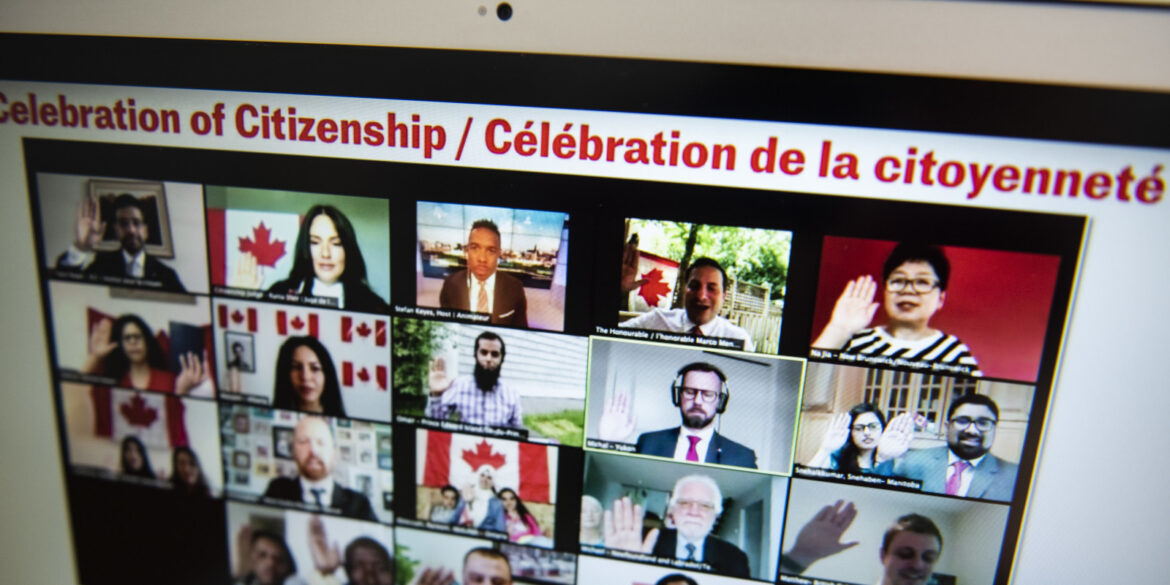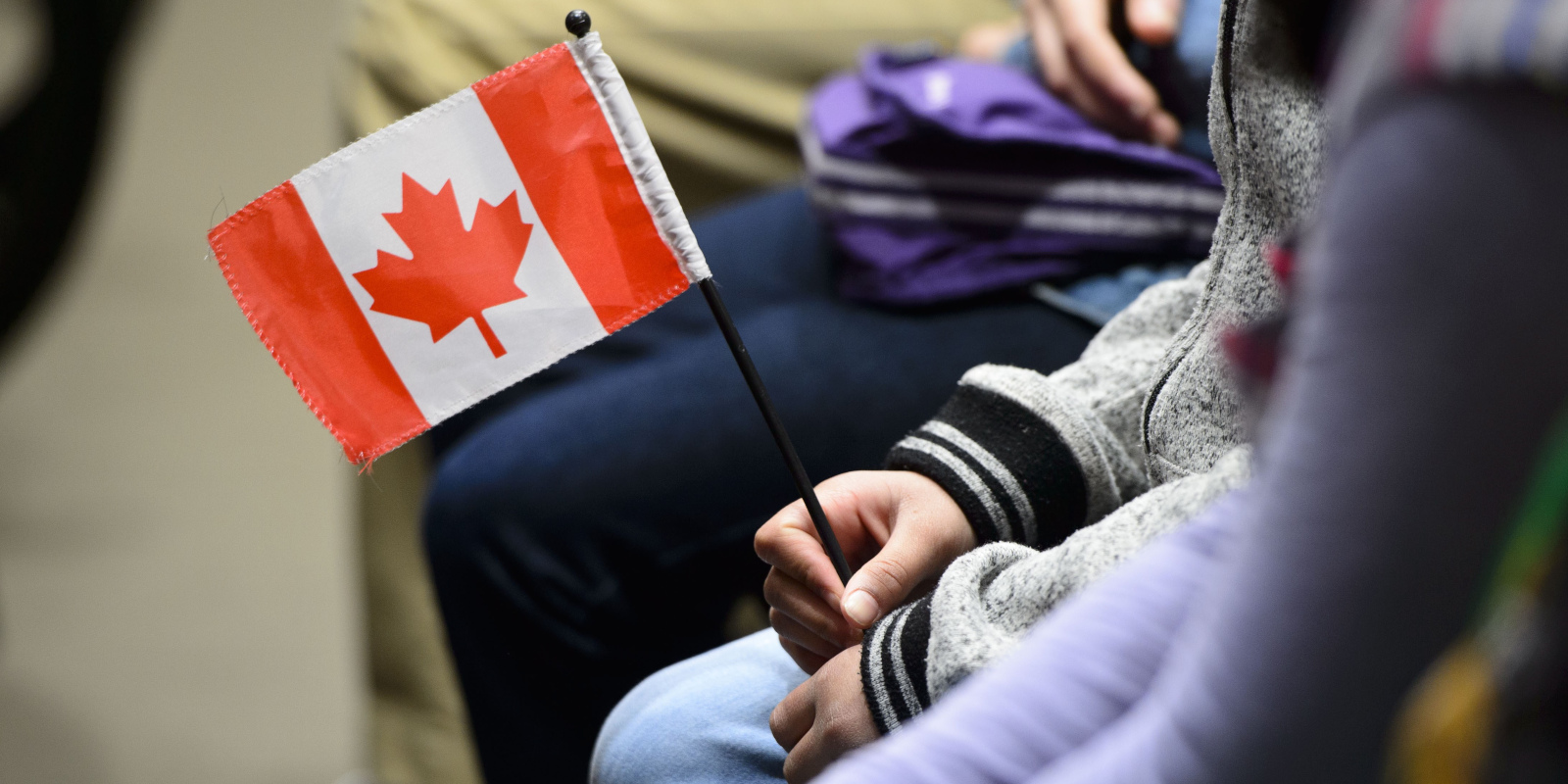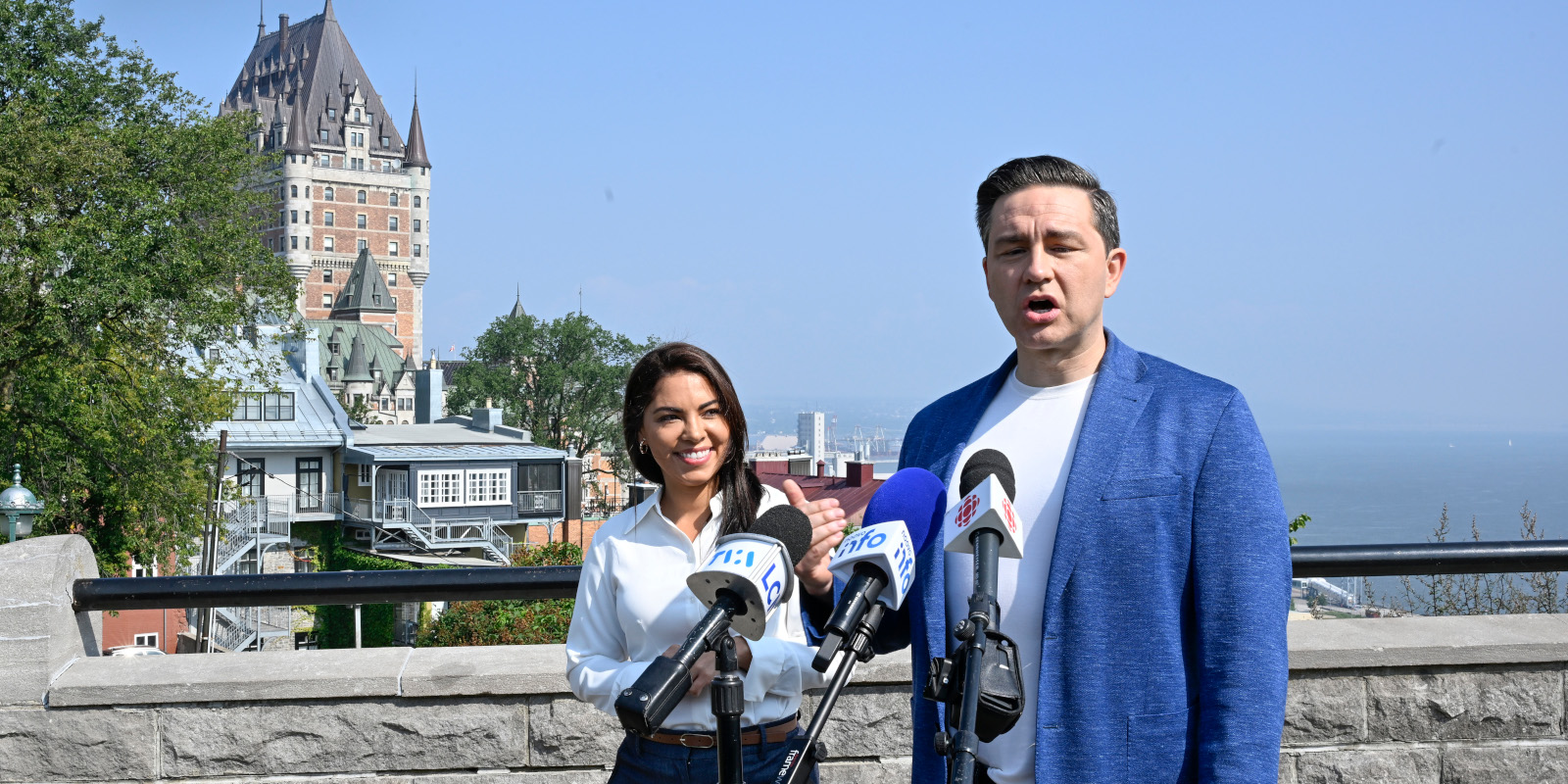Canadians are stressed about the economy. You don’t need mountains of polling data to figure that out. But dig into the work of Canada’s pollsters and you’ll find only 14 percent of people say they are better off financially than they were a year ago and, even worse than that, many Canadians don’t see any relief on the horizon. What can we do about this? In this five-part Hub series, we’re digging deeper into the economy, identifying our country’s fiscal problems, but also offering solutions to our monetary malaise.
Part 1: Independent or not, groupthink might be the Bank of Canada’s worst enemy
Part 2: Is Canada’s real estate-driven economy dragging down growth?
Part 3: Lots of debt. Higher interest rates. Big political promises. How sustainable are Canada’s finances?

A historic 431,645 new permanent residents were added to Canada’s population in 2022, but decreasing affordability and a sluggish economy have many immigrants reconsidering a future in Canada.
Immigration advocates and business leaders say it will have troubling consequences for the country.
Just over a year ago, a survey conducted by Leger on behalf of the Institute for Canadian Citizenship suggested that three out of 10 immigrants in Canada aged 35 and under are considering leaving the country within the next two years. The reasons cited were the astronomical cost of living and unrecognized credentials.
“We think that because we’re not an officially xenophobic country, and because we are more open to newcomers than most other developed countries in the world, that this is therefore just paradise and everyone will come and stay,” says ICC CEO Daniel Bernhard.
The ICC is a national charity that assists newcomers with the immigration process and integrating into Canadian society. Bernhard says the ICC’s research team could find no official studies about Canada’s immigrant retention rate and are now in the process of conducting one themselves.
“We do know…that the number of permanent residents who are becoming citizens has nosedived, so these are indications that newcomers are falling out of love with Canada,” says Bernhard.
In February, the ICC reported that the 2021 census found just 45.7 percent of permanent residents had gone on to become citizens in that previous 10-year period, a sharp decline from 75 percent in 2001.
Canada fell from 9th place in 2016 to 15th in the Global Talent Competitiveness Index and scored poorly on immigration retention.
“Two-thirds of our members directly recruit newcomers through the immigration system and then the rest of them hire newcomers once they’re already relocated in Canada,” says Trevor Neiman, the director of policy and legal counsel at the Business Council of Canada.
Neiman, and others in the business community, say this poses a major problem for the country’s economy.
“Having a sufficient supply of labour underpins our entire economic model,” says Daniel Safayeni, the vice president of policy at the Ontario Chamber of Commerce. “So for businesses, to be able to find and retain the talent that they need is critical, and immigration is part of that equation.”
However, others are skeptical of the alarm bells being rung over these potential departures.
“We have processed more cases than ever, at a fraction of the cost,” says Richard Kurland, a lawyer and policy analyst at Kurland-Tobe, a law firm specializing in immigration. “We have undergone an upgrade. It is a work in process, not perfect by any means, but what can you say when you get more people we need in huge numbers at the lowest per case cost ever?”
Canada’s brand is threatened
While noting Canada has a very strong immigration brand that has helped it retain the best and brightest over the years, Neiman says that brand is under threat due to Canada falling behind on immigration backlogs, affordable housing, and credentialing.
Neiman points out that in the Global Talent Competitiveness Index, Canada fell from 9th place in 2016 to 15th, and scored poorly on immigration retention.
Bernhard says Canada needs a sufficient working-age population to support the social services promised by the government but that many of the countries that Canada traditionally relies upon for a supply of immigrants are outperforming it in key areas.
“We do need a fresh infusion of working-age people…there are a lot of other countries that have figured out how to deliver health care at a high quality for less money, they figured out how to build transit at a decent quality for less money, they figured out how to build housing at a decent quality for less money,” says Bernhard.
Neiman says countries like India and China have worked to curb skilled emigration, resulting in many of their citizens choosing to return home after a period of working or being educated in Canada.
In 2022, the Times of India reported that many Indian nationals working abroad were returning home due to pandemic-born uncertainties and competitive job offers. Furthermore, Neiman says countries like Australia, who have historically been less open to immigration, have changed their policies to make them more attractive.
Last August, the Australian government raised its permanent annual immigration quota to 195,000, up from 160,000 in the previous year. Worth noting is that the GCTI ranked Australia in 9th place in 2022, Canada’s former position.
“Businesses and governments need to be laser-focused on ensuring that Canada is the top choice for newcomers who have so many options, and who are so sophisticated, and can choose wherever in the world they want to be,” says Neiman.

Credentials aren’t recognized
Bernhard notes that highly regulated professions such as engineering, nursing, law, and medicine have strong entry barriers in Canada.
“Immigrants to Canada in the economic class tend to be about twice as likely as the average Canadian to hold a university degree,” says Bernhard. “They’re far better educated and tend to actually be considerably younger, so they have more working years ahead of them.”
Credentials in fields like dentistry and medicine from countries like India and Iran, both sources of large numbers of immigrants, are often not recognized by those industries’ professional colleges in Canada.
“A lot of people don’t find appropriate employment right away,” says Bernhard. “And eventually that gap shrinks, but the impact on earnings and things like that lasts forever.”
In the past, these barriers have resulted in legal battles to ensure foreign accreditation is properly recognized, such as in B.C. to ensure that Indian-trained veterinarians could be allowed to practice without undue scrutiny.
Calls to soften the barriers for people trained abroad in the medical profession have grown in recent years as Canada’s health-care system is increasingly strained by a lack of new doctors and nurses. Bernhard says other barriers exist for other professions as well.
“What a lot of people do not realize is that there are other softer barriers for people like marketing professionals, HR people, all these non-regulated jobs, where peoples’ experiences are also not being fairly recognized in the workplace,” says Bernhard. “It’s a big problem for Canada, which reports shortages in these areas despite the presence of many people who are qualified and working below their capability.”

Not a new issue
Anil Verma, the professor emeritus of industrial relations and HR management at the University of Toronto’s Rotman School of Management, does not believe the trend of immigrants cooling to Canada is new at all.
“Just to give you my personal perspective on this, I emigrated to Canada in 1974, and so now over the last 50 years, I’ve seen the ebb and flow of immigrants coming and going,” says Verma. “It accelerates in the years that the Canadian economy is not doing well. It is much less of a problem during growth years, so there is an economic cycle to this.”
Safayeni says Ontario’s economy is expected to slow down eventually as a result of higher interest rates, so it’s understandable that businesses are feeling more pessimistic.
“But when you look at the top two concerns underpinning that concern, it’s labour shortages and inflation,” says Safayeni.
Verma believes modern immigration to Canada must be addressed as a long-term issue, and that the country is being affected by a globalizing economy.
“I think that what has happened, and that is relatively newer, is that there is a global market now in high-tech talent,” says Verma. “If you are a cutting-edge medical researcher, or similarly positioned in your profession or occupation, there are people all over the world hunting for you, or enticing you to move.”
“Our members are disproportionately using immigration programs to attract highly skilled and highly specialized talent,” says Neiman. “So things like cyber security professionals, engineers, mathematicians.”
Neiman says the labour shortage situation has changed drastically in the past few years regarding the need to fill gaps in the labour market.
Record numbers of Canadian workers retired during the pandemic, and from August 2021 to August 2022, yearly retirements rose by over 30 percent.
Neiman says that while they use the immigration system to address labour shortages, there is a wider interest in highly skilled immigrants with specialized areas of expertise.
“The particular skill set that’s in demand, that kind of a higher skill type of more specialized talent, has also grown as well,” says Neiman. “So I think there’s big structural forces here that are at play.”

Affordability matters
Internal migration may provide an example of how an issue like unaffordability is driving young, educated workers out of Toronto, Canada’s economic centre for the last 50 years, to more affordable cities like Calgary. One of the main reasons cited for Toronto’s unaffordability is the lack of housing supply in the Greater Toronto Area.
Affordability has traditionally not been an area covered by the Chamber, but Safayeni says it has struck a task force to study the issue. In April, Alberta residents paid $873 less in monthly rent for an apartment, and $387,780 less when buying a house in March.
Verma says affordability remains a huge problem, and that young people are drawn to urban centres like Vancouver and Toronto, but it becomes a problem when their salaries cannot cover the costs of living.
Bernhard says the affordability crisis affects everybody, immigrant or non-immigrant.
“Immigrants are a special class of people, but they also live in society with everybody else, and they’re subjected to the same pressures as everybody else,” says Bernhard.
Verma, however, says people whose families have settled in Canada would be reluctant to uproot themselves and move away. He says the survey showing three out of 10 permanent residents are considering leaving Canada displays only their opinion, not what will actually happen.
“I don’t see that this is a big problem. The main reason why people come to Canada is because of better economic opportunities,” says Verma. “Canada is a great place to live…wages are relatively high as compared to the world. They are not as high as in the U.S. but that has been true for the last 50 years.”
Richard Kurland, the lawyer at Kurland-Tobe, however, says anybody who leaves Canada will be replaced by others.
“You have a bus where 25 percent of the passengers want out, and four times that number of people who want in,” says Kurland. “Anyone who wants to leave, God bless. There are a ton of replacements, with higher human capital scores, due to the nature of Canada’s new selection system.”
Bernhard says Canada can learn from new immigrants to its benefit.
“It isn’t just about standing still and replacing old people and hoping for the best. It’s about an optimistic vision for the future,” he said.
“Canada has always been built on that vision for hundreds of years, this is how we succeeded and I think that we need to keep that tradition alive.”
Recommended for You

Ginny Roth: J.D. Vance, Pierre Poilievre, and how they slice their economic pie

Trevor Tombe: Canadians are paying billions in hidden taxes on new homes

Stephen Staley: Widespread deregulation is Canada’s golden ticket for economic growth

Stephen Staley: Canada’s economy is trapped in a tangled web of over-regulation. Growth and prosperity demands we cut ourselves free










